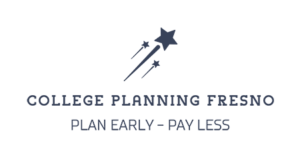The Problem with 529 Plans
SAVING FOR YOUR KIDS’ COLLEGE EDUCATION
College Planning Fresno has the tools to help analyze opportunities and risks that families need to keep in mind early on, when considering how best to have enough college savings for their kids. By helping families consider factors like taxes, financial aid, and unforeseen changes in the future economy, new opportunities can arise that make for a college savings strategy for each family’s unique situation and needs.
Unintentional Mistakes Parents May Make When Saving for their Kids’ College Education
Using college-specific savings plans
There are a lot of college-specific savings plans, the most popular being a ‘529’ plan. These are savings plans designed to be used only for college funding purposes and give the student and parent tax benefits by agreeing to the plan terms. Most college-specific plans are invested in mutual funds and, as with typical investments of these types, the parent can choose to have a high-risk or low-risk plan.
popular being a ‘529’ plan. These are savings plans designed to be used only for college funding purposes and give the student and parent tax benefits by agreeing to the plan terms. Most college-specific plans are invested in mutual funds and, as with typical investments of these types, the parent can choose to have a high-risk or low-risk plan.
These plans typically won’t coordinate with a cost recovery strategy. All parents should be asking how they may be able to get their money back after paying for college. Also, if a family can avoid paying for college, retaining this capital would significantly complement their retirement.
Before choosing a savings plan, it’s important for parents to think about and discuss all available resources to pay for their kids’ college education—not just college-specific plans.
From a savings perspective, the problem lies within the “what-if” and “how” questions that parents should be considering:
- What happens if the market doesn’t perform as well as expected—or worse, what if the market tanks during the distribution phase?
- How may the FAFSA or Merit financial aid formula be negatively affected?
- If you have more than one child and have multiple 529 accounts, all the 529 accounts will need to be disclosed when the first child applies for federal aid. This may cause a higher EFC (Expected Family Contribution.)
- What happens to the contributions to a college savings plan if a parent becomes disabled or dies prematurely?
- How do the fees charged for the savings plan affect the amount available when college starts?
- What happens to your money if your child doesn’t go to college for some unexpected reason?
- What happens to your money if your child gets a full scholarship and doesn’t have to pay for college?
- How much will college cost in the future? Will your savings plan be sufficient at that time?
- How may a college-specific savings plan negatively affect your own financial future?
A financial representative skilled in college savings and overall wealth building can typically help you find a less expensive and better option than college-specific savings plans.
Schedule a free, no obligation consultation here

